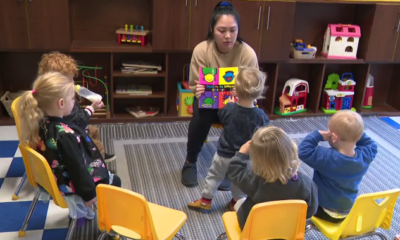Advice
Do You Know How Your Child Is Feeling? A Reflection for Parents in The New Year

Are you aware of your child’s emotions? With the start of the new year, it’s time to get back to work, school, and parenting. Parenting is a continuous job that never takes a break. Whether your child is returning to college after the holidays or coming home from soccer practice or a sleepover, the to-do list is never-ending. However, every moment presents an opportunity to connect and strengthen your relationship.
As we move further into 2025, take a moment to ask yourself: “Do I truly understand how my child is feeling?” This question goes beyond their grades and schedule, delving into deeper matters like friendships, sense of belonging, hopes, and fears for the future. While these conversations may be challenging, they are crucial, and it all starts with a simple yet powerful question to them: “How are you feeling?”
We have learned from years of research and interactions with parents and teachers in school communities served by the Yale Center for Emotional Intelligence that children’s emotional well-being thrives in safe, warm environments that encourage genuine curiosity and openness.
To create a moment of connection that is accepting and positive, eliminate distractions, find a quiet time, put away your phone, and focus on regulating your own emotions. Approach the conversation with tenderness, compassion, and genuine interest. These small gestures convey to your child that they are your priority and pave the way for deeper communication.
The “RULER” skills of emotional intelligence can be a useful guide in these conversations:
Recognize emotions: Observe your child’s emotional cues and begin the conversation with open-ended questions to understand their feelings better.
Understand emotions: Inquire about the factors influencing their emotions and show curiosity and empathy in your responses.
Label emotions: Help your child find the right words to express their feelings and focus on accurate labeling to understand and address those emotions effectively.
Express emotions: Encourage your child to express their emotions authentically and guide them on appropriate ways to do so.
Regulate emotions: Assist your child in developing strategies to manage their feelings and offer support throughout the process.
Continuing the conversation: Follow up with your child regularly to show that their emotions are important to you beyond the initial conversation.
Remember to avoid overwhelm—offer space to talk at their own pace while reassuring them of your support.
Acknowledge bids for connection: Reinforce the small steps they take to connect and share, whether it’s opening up about their day for a few minutes or quietly spending more time in your presence. Name their growing skills (“I really appreciate how you’ve been doing more of…”); it helps build trust, confidence, and connection with you.
Use words of affirmation: Simply saying, “I love you” or “I’m proud of you for…” and naming the specific behaviors and attitudes that you see or hear from them—is powerful. These affirmations, combined with your actions, remind your child that they are valued unconditionally.
Parenting isn’t about being perfect. It’s about showing up, trying again, and steadily leading with acceptance, tenderness, and love. In the rush to provide your child with the best in life—be it the best school, the best extracurriculars, or the best home—the simple gift of feeling understood and valued while they learn about their own emotions, may be the best gift at the start of their new year.
Robin Stern, Ph.D. is the co-founder and senior adviser to the director of the Yale Center for Emotional Intelligence, a psychoanalyst in private practice, the author of “The Gaslight Effect” and the host of “The Gaslight Effect” podcast.
Diana Divecha, Ph.D. is a developmental psychologist, an assistant clinical professor at the Yale Child Study Center and Yale Center for Emotional Intelligence, and on the advisory board of the Greater Good Science Center. Her blog is developmentalscience.com.
Marc Brackett, Ph.D. is the founding director of the Yale Center for Emotional Intelligence, a professor in the Child Study Center at Yale, lead developer of RULER, an evidence-based approach to social and emotional learning, and the author of “Permission to Feel.”
-

 Destination7 months ago
Destination7 months agoSingapore Airlines CEO set to join board of Air India, BA News, BA
-

 Breaking News8 months ago
Breaking News8 months agoCroatia to reintroduce compulsory military draft as regional tensions soar
-

 Tech News11 months ago
Tech News11 months agoBangladeshi police agents accused of selling citizens’ personal information on Telegram
-

 Breaking News8 months ago
Breaking News8 months agoBangladesh crisis: Refaat Ahmed sworn in as Bangladesh’s new chief justice
-

 Guides & Tips9 months ago
Guides & Tips9 months agoHave Unlimited Korean Food at MANY Unlimited Topokki!
-

 Gaming8 months ago
Gaming8 months agoThe Criterion Collection announces November 2024 releases, Seven Samurai 4K and more
-

 Toys10 months ago
Toys10 months ago15 of the Best Trike & Tricycles Mums Recommend
-

 Tech News9 months ago
Tech News9 months agoSoccer team’s drone at center of Paris Olympics spying scandal























